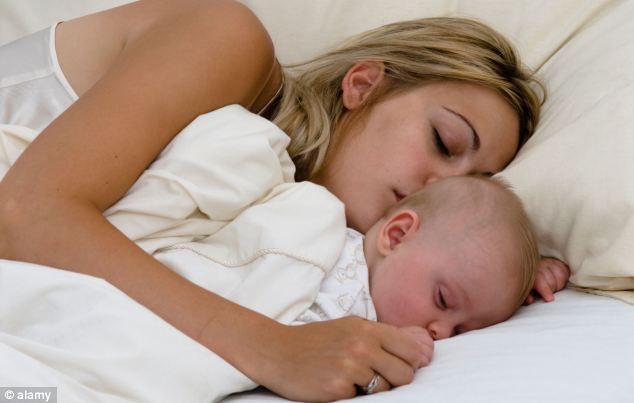Article
Sharing Bed with Baby Promotes Breastfeeding, But Raises SIDS Risk
Author(s):
In light of the recent national push to promote breastfeeding, a new study provides guidance for mothers who extend their breastfeeding duration by frequently sharing a bed with their infants, yet also put their babies at greater risk of sudden infant death syndrome (SIDS) and suffocation death.

In light of the recent national push to promote breastfeeding, a new study published in JAMA Pediatrics provides guidance for mothers who extend their breastfeeding duration by frequently sharing a bed with their infants, yet also put their babies at greater risk of sudden infant death syndrome (SIDS) and suffocation death.
“Many experts — including the American Academy of Pediatrics — recommend not to bed-share, because bed-sharing can increase the risk of SIDS and suffocation deaths. On the other hand, breastfeeding reduces the risk of SIDS, and this research has suggested that there is a positive association between bed-sharing and longer breastfeeding,” study co-author Fern R. Hauck, MD, from the Departments of Family Medicine and Public Health Sciences at the University of Virginia School of Medicine said in a press release. “So, you’ve got this tension for women who want to bed-share because they feel it helps them to breastfeed more easily, to keep an eye on their baby, and to bond.”
Recognizing that some physicians are unsure about what to advise new mothers, Hauck and researchers from the University of Maryland Baltimore County, Johns Hopkins Medical Institutions, the University of Nebraska Medical Center, the US Department of Health and Human Services, and the US Food and Drug Administration examined longitudinal data on more than 1,800 women who started breastfeeding within two weeks of giving birth in order to determine whether breastfeeding duration increased among mothers who co-sleep with their infants.
At the conclusion of their survival analysis, the researchers found that “longer duration of bed-sharing … was associated with a longer duration of any breastfeeding,” though that effect was less pronounced among mothers who exclusively breastfed compared to those who introduced other food sources. Additionally, the researchers noted longer breastfeeding among women “who were better educated, were white, had previously breastfed, had planned to breastfeed, and had not returned to work in the first year postpartum” — suggesting that infant-parent bed-sharing is just one of a number of variables that influence breastfeeding duration.
Based on those research findings, which were published online on Sept. 23, Hauck recommended “bringing babies into the bed to breastfeed, but you want to do that only while you’re awake.”
“The goal is to return the baby (after breastfeeding) to their own sleep location to keep them safe,” Hauck said.
2 Commerce Drive
Cranbury, NJ 08512
All rights reserved.





